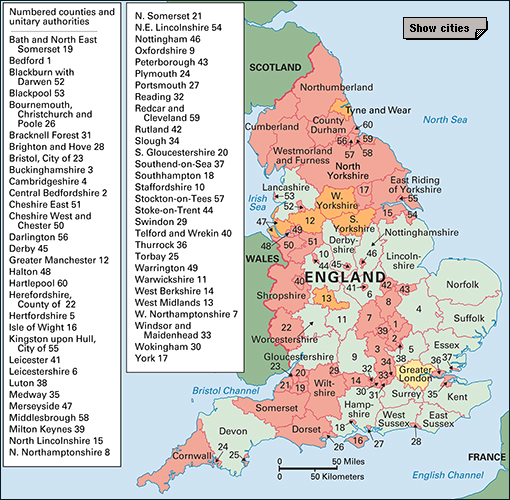Cheshire is a ceremonial county in northwestern England. It is traditionally known for the cheese named after it, for salt mining, for railroad engineering, and for its agriculture. Chester is the main city and former administrative center of Cheshire. In the late 1900’s and early 2000’s, Cheshire was divided into the unitary authorities (local government areas) of Cheshire East, Cheshire West and Chester, Halton, and Warrington.

In about A.D. 80, the Romans built the fort of Deva where Chester now stands. In 1070, Chester became the last town in England to yield to the Norman invader William the Conqueror. After the Norman Conquest, Cheshire was made a county palatine (province of a feudal lord) under the Earl of Chester. It had its own parliament, but the earl owned all the land except what belonged to the Roman Catholic Church. This situation continued until the reign of King Henry VIII in the 1500’s.
Famous people associated with Cheshire include the writer Elizabeth Gaskell, who lived in Knutsford. She wrote about the village in her book Cranford (1853). The hymn writer Reginald Heber was born in Malpas. Missionary and explorer Sir Wilfred Grenfell came from Parkgate.
